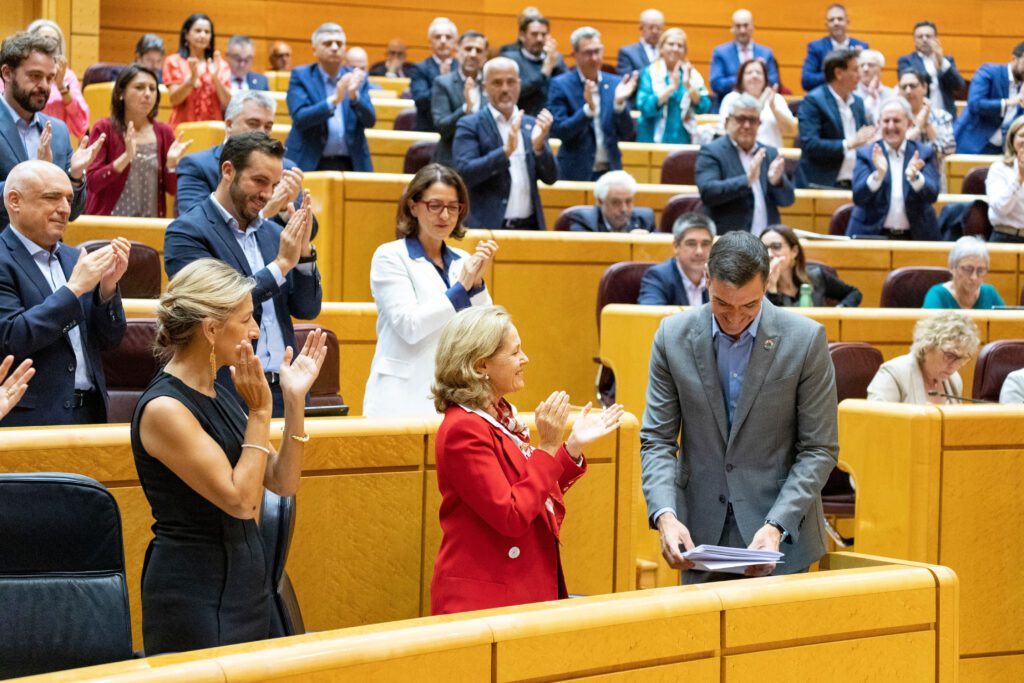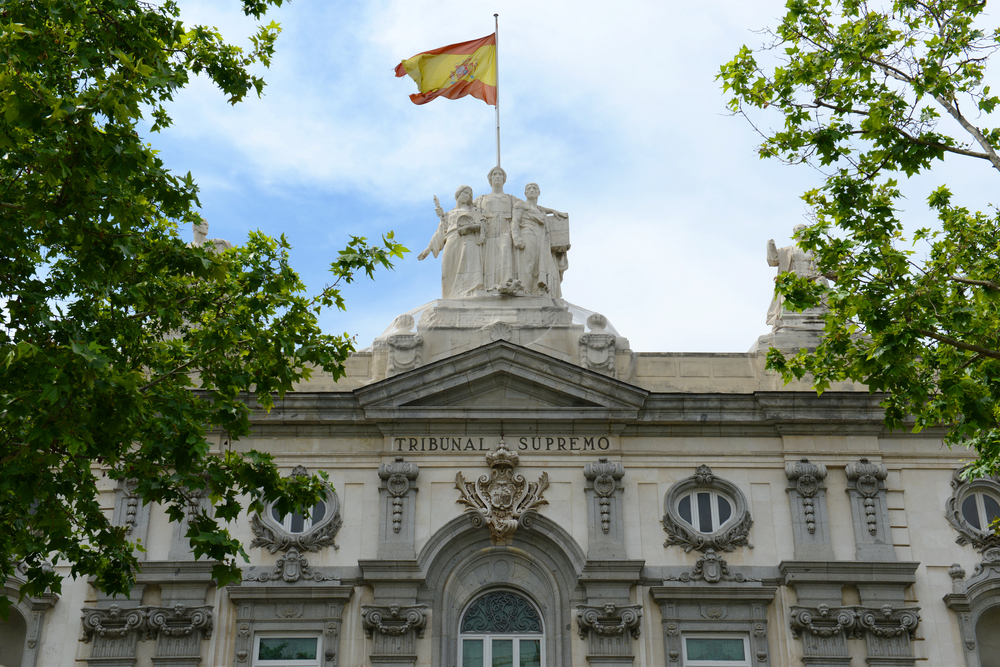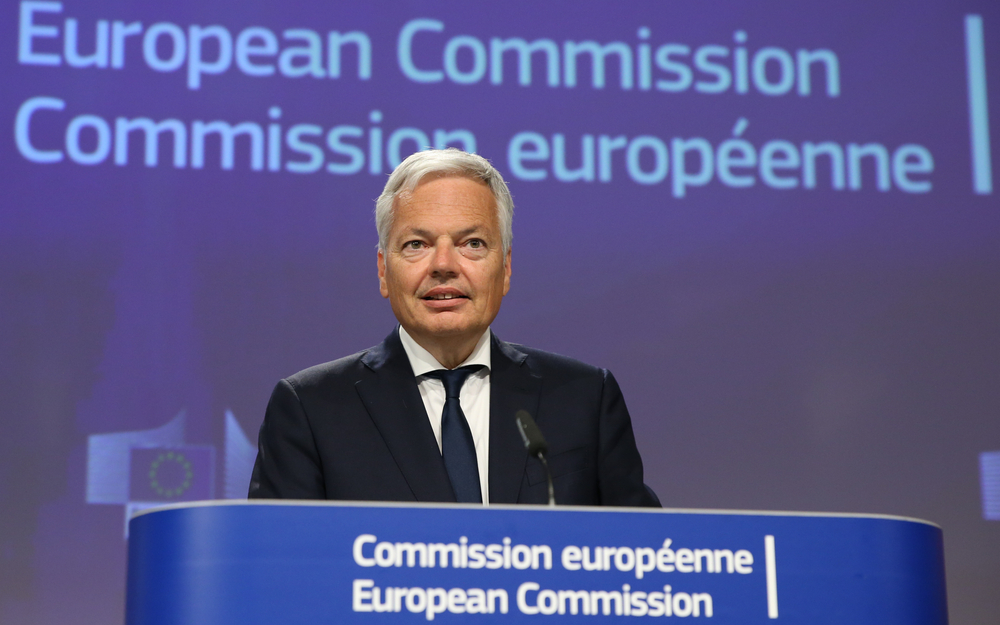It is not uncommon for Hungary and Poland to be mentioned in discussions regarding EU law disobedience. However, while it is true that the democratic backsliding of these two Member States represents the most visible and extreme example of defying EU law, more often than not Member States’ non-compliance is more subtle and can be found beyond Hungary and Poland. Stories of disobedience surface every day in all corners of the EU, from violations of the Schengen rules in Denmark, product safety regulations in Belgium, or EU-wide bans on certain types of chemicals in Romania, to potentially serious breaches of EU law as is the case in Spain. Particularly, the inability of the Spanish Parliament to renew the General Council of the Judiciary since December 2018 is leading to a justice deficit in the country—a potential breach of the EU’s rule of law standards.
The General Council of the Judiciary is the Spanish judicial branch’s self-governing body tasked with appointing, transferring, promoting, training, and recruiting judges. Moreover, it ensures and oversees judicial independence by exercising disciplinary actions when needed for a term of 5 years. The nomination and election procedure of the General Council is entrusted to the Congress of Deputies and the Senate, which elects the new members by a three-fifths majority. This means that the appointment of a new General Council requires a broad consensus among the political parties represented in parliament. In theory, this is to ensure that the ideological composition of the General Council mirrors the ideological composition of Spanish society as the members of the General Council often hold the political preferences of the party that nominated them.
The changes in the structure of the Spanish party system can be pinpointed as one of the reasons behind the negotiation deadlock. Before 2015, the two main parties, the centre-right PP (People’s Party) and the centre-left PSOE (Socialist Party), divided the majority of the nominations depending on their parliamentary strength and offered the remaining nominations to the minority parties. Since the 2015 general election, the Spanish party system has evolved from a two-party system to a multi-party system where PP and PSOE no longer have a majority. Hence, they need to seek support from other medium-sized parties for governing and carrying out their agendas, including the renewal of constitutional bodies and institutions. All things considered, reaching the necessary threshold to renew the General Council is more difficult today than it has ever been.


On top of this, the increasing polarisation of the Spanish party system has led to deep political divisions over the appointment of a new General Council between the PSOE and UP (Unidas Podemos) left-wing coalition government and the main opposition party PP. As mentioned before, the ideological composition of the General Council mirrors the political divides present in Spanish politics. Hence, while the PSOE-UP coalition government has been urging the main opposition party to renew this institution for years, the PP leadership refuses to do it in an effort to “protect the judiciary”. They claim the PSOE-UP coalition government wants to “control justice and politicise it”. However, the politicisation of the nomination and election process only became problematic after the 2015 general election, since PP and PSOE can no longer rely on their numbers in parliament to nominate and elect a new General Council. This political entrenchment has resulted in the current General Council, elected in 2013, being in its positions for almost ten years now, which is twice as long as it was supposed to be and with the negotiations to renew it at a standstill.
The effective functioning of the Spanish judiciary as a pillar institution for upholding the rule of law within and outside of Spain is at risk due to this deadlock. Since the General Council cannot appoint judges to top positions in the Supreme Court while in the interim, it is currently working with 14 percent fewer judges than required by law. If prolonged over time it will lead to it issuing 1000 fewer rulings per year. Data from the General Council showcases how this is also affecting lower courts. As of December 2022, the deadlock in the renewal of the General Council has meant that 70 appointments in different ranks of the judiciary have not been able to take place. Therefore, fewer rulings will be issued across all levels of the Spanish judicial system, meaning that “less law” will be applied, including EU law. In a wider European context, this justice deficit is the reason why this very Spanish-centred issue is concerning.


Effective and functional national judicial systems are essential for applying EU law and for upholding the EU’s common values since national courts act as EU courts when they apply EU law. The EU legal system works under the presumption that all EU and national institutions uphold the law, and ensure the mutual recognition of judicial decisions. If one Member State fails to uphold the rule of law, whether deliberately as in the case of Hungary or Poland, or by neglect as in the case of Spain, it threatens the functioning of the EU legal order. Such problems threaten the observance and respect of EU citizens’ and organisations’ rights within and beyond the offending Member States. Ultimately, this poses a threat to the democratic foundation of the EU.
In Brussels, the EU Commission has opted for a non-confrontational approach. This can be traced back to the Commission’s reliance on Member States’ support to carry out its supranational agenda, and the growing recognition that Euroscepticism is on the rise, even in generally pro-EU countries like Spain. Actions by the Commission include expressing their views for the third consecutive year in the Spanish chapter of its Rule of Law report. It states that the non-renewal of the General Council “remains a concern” and puts forward data that showcases how “the level of perceived judicial independence in Spain continues to be low among the general public”. Spain is being called out to prioritise the renewal of this key institution in the European Parliament and even on social media by relevant figures in the EU Commission, such as the EU Commissioner for Justice, Didier Reynders.


However, the possibility of the renewal of the General Council of the Judiciary without any sort of external pressure beyond press releases and dialogue seems unlikely in the near future. This can be attributed not only to the current state of Spanish politics but also the hecticness of the upcoming local and regional elections in May and an extremely competitive general election in December this year. Especially since the main parties involved in the negotiations are immersed in their electoral campaigns.
At this point, only time can tell what happens next. There is no doubt that Spain’s very own compliance problem with the rule of law shows a different take on disobedience than the extreme cases of Poland and Hungary. Spain’s case, given its backstory, can be categorised as non-compliance by neglect. Increasingly, the negative consequences are starting to be felt in the Spanish judicial system, and will soon translate into the wider EU legal system, if the situation stays unresolved either by inaction at the national level or at the EU level.
By Ana Caselles Calle








